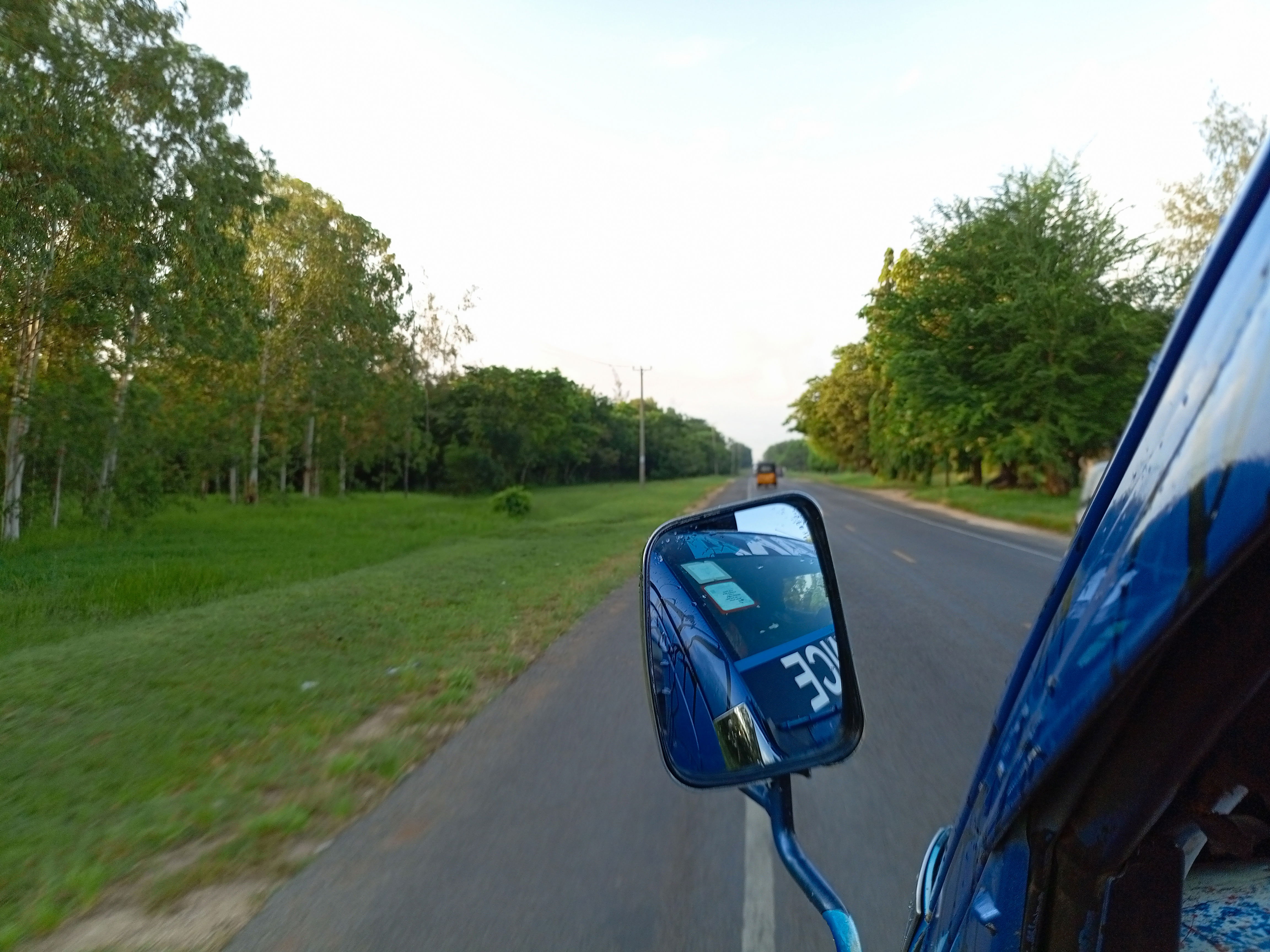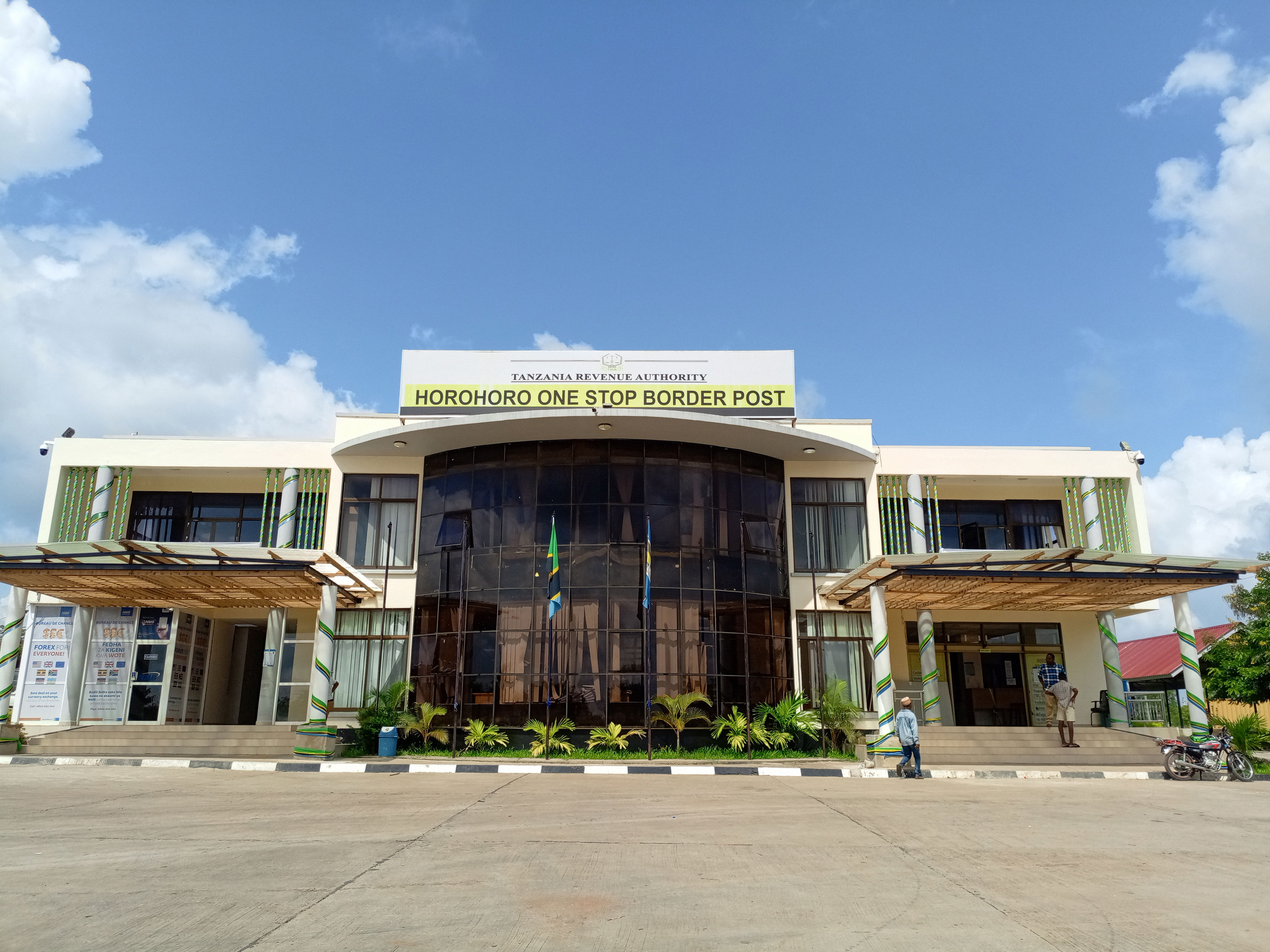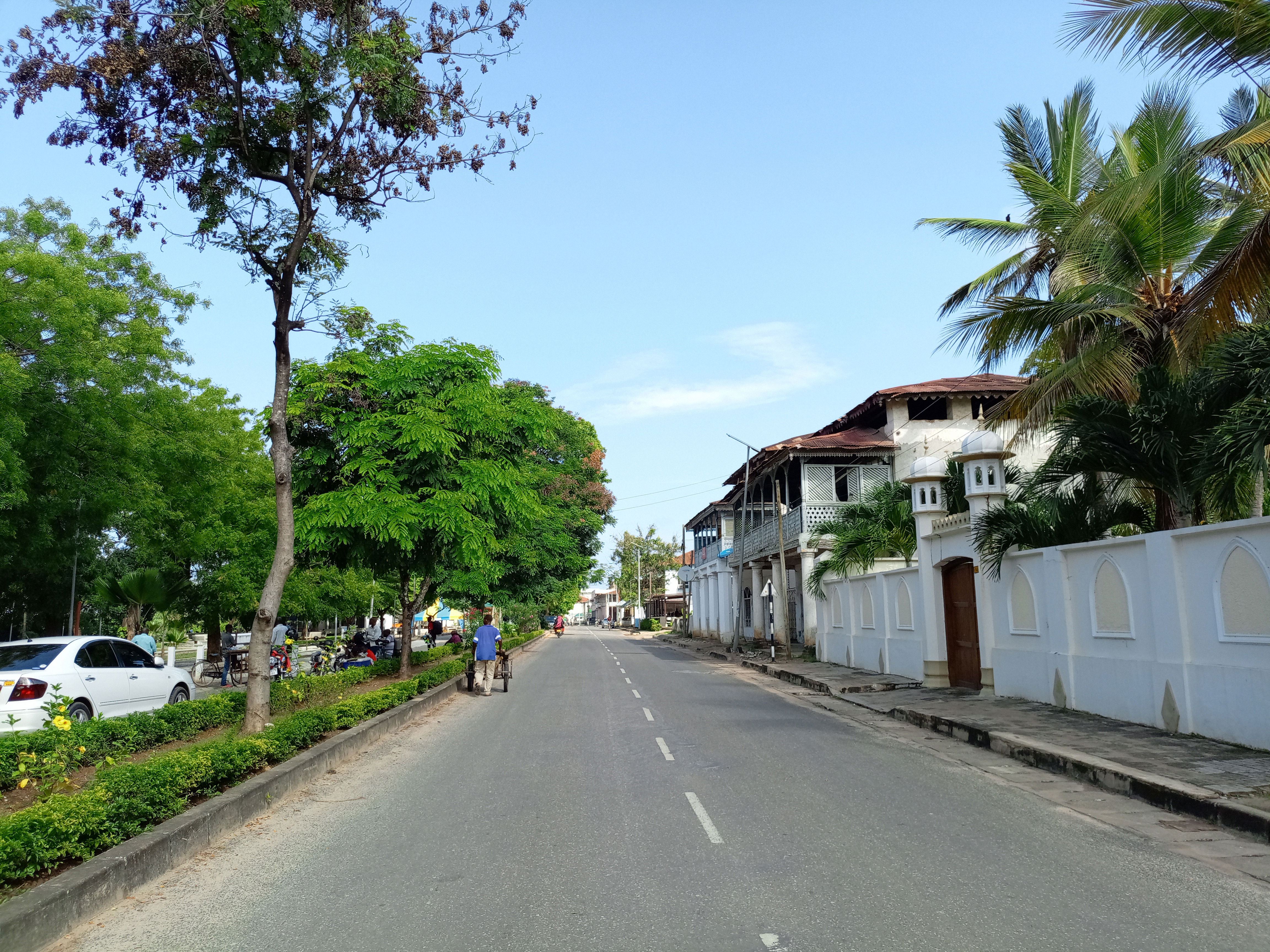Tanga: Riding the Coastal Wave
The last time I updated this section, I was navigating the chaos of trying to get to Tanga. Every bus heading to Tanzania was fully booked—an inconvenience, yes, but not a deal-breaker. I had no choice but to piece together my own cross-border odyssey, one mode of transport at a time.
From downtown Mombasa, I flagged down a three-wheeler—locally known as a tuktuk—and buzzed through the city’s tangled streets toward the Likoni Ferry. The morning air was thick with salt and sun, and the traffic was a predictable mess of matatus, handcarts, and motorcycles. But my tuktuk driver was unfazed, slicing through the gridlock with practiced ease.
After crossing to the southern mainland via ferry—amid a throng of commuters and hawkers—I squeezed into a 14-seater van bound for Lunga Lunga, winding its way down the coast via Diani. The road was scenic, skimming past coral mosques, mango vendors, and fleeting glimpses of the ocean glinting like a silver ribbon in the sun.
With no buses in sight between Lunga Lunga and the Horohoro One-Stop Border Post, my only option was a bodaboda—a motorcycle taxi. I climbed aboard, and off we sped, the wind snapping me awake as we zipped through the tropical heat. We cruised past drowsy settlements where time seemed to stretch and blur, moving at its own unhurried pace.

After crossing to the southern mainland via ferry—amid a throng of commuters and hawkers—I squeezed into a 14-seater van bound for Lunga Lunga, winding its way down the coast via Diani.
Crossing into Tanzania was swift, save for long lines in the immigration hall. Once on the other side, I hopped into a Tanga-bound van. The driver and his passengers treated the trip like a rolling reunion. We stopped in nearly every village, exchanging greetings, picking up parcels, even detouring to a fishing camp to drop off a carefully wrapped bundle of goods. No one seemed to be in a rush—not the driver, not the passengers, and eventually, not even me. I let go of the clock and leaned into the rhythm of Swahili life.
When we finally rolled into Tanga, I hailed a bajaji—what Tanzanians call a tuktuk—and asked the rider to recommend a place I could stay on a modest budget of USD 15–20. He didn’t hesitate. “Golden Memory Lodge, Fourteenth Street,” he said. The name alone felt like a promise—and it didn’t disappoint. Later, I found out that among budget travelers, Golden Memory has a solid reputation: clean, central, and affordable.
I hadn’t slept the night before, thanks to my impromptu exploration of Mombasa by night. So my plan for Tanga was simple: a light tour, an early dinner, and straight to bed. I briefly considered visiting the Amboni Caves, but the distance—and my dwindling energy—quickly ruled that out.
Instead, I had lunch at Forodhani Gardens, where the ocean peeks at you from behind a fringe of trees and the grilled fish is served hot with a spicy kick. The scent of grilled seafood and the cool breeze from the ocean made for a perfect midday pause. Afterward, I made my way to Raskazone Beach.

Crossing into Tanzania was swift, save for long lines in the immigration hall. Once on the other side, I hopped into a Tanga-bound van.
There, I kicked back and let the world slow down, sipping fresh coconut juice straight from the shell. The sun glinted off the water, and the rhythmic crash of waves had a calming effect—until I swapped serenity for adrenaline. Moments later, I was slicing across the Indian Ocean on a jet ski, the salty spray slapping my face as I bounced over the waves. It was the perfect way to reconnect with the Indian Ocean—the geographical feature I had sorely missed.
As dusk settled in, I wandered through the heart of the municipality, letting my feet guide me. Walking allows me to observe and absorb more. One step after another, I saw weathered colonial buildings, children playing football in sandy alleys, and women in colorful khanga fabric chatting outside tiny neighborhood shops.
Before returning to Golden Memory for the night, I paused at a street corner where a group of elderly men—wazee wa Tanga—were deep in a game of bao, a popular board game along the East African coastal strip. They welcomed me without fanfare. I sat down, sipping strong black coffee from one of those tiny enamel cups, and played a few quiet rounds under the warm orange glow of a streetlamp. It felt like the perfect end to a long, winding day.

As dusk settled in, I wandered through the heart of the municipality, letting my feet guide me. Walking, I’ve found, is the best way to fall into step with a place.